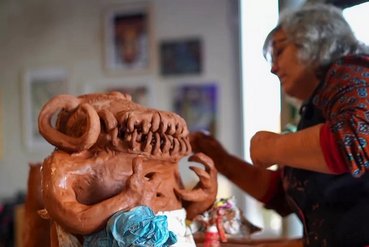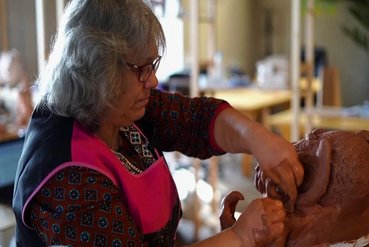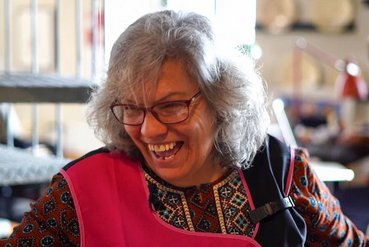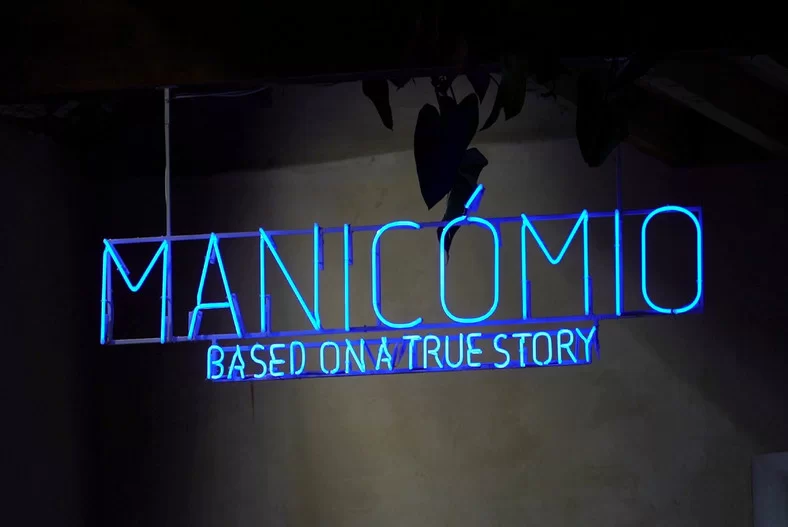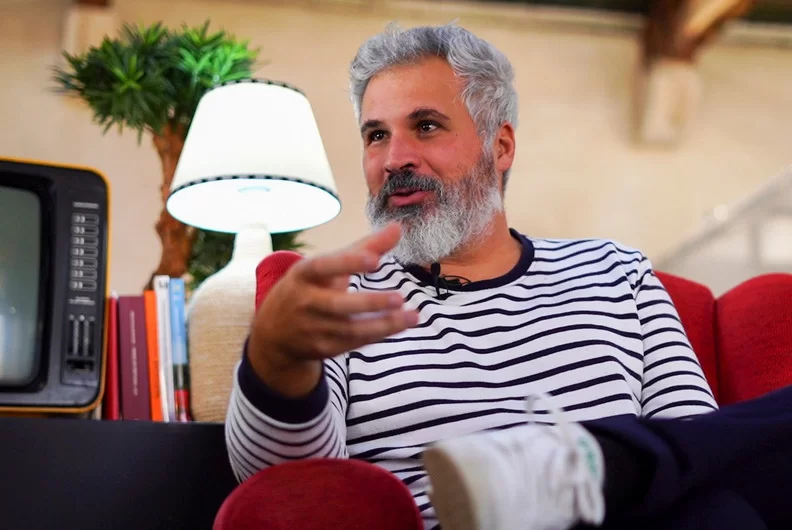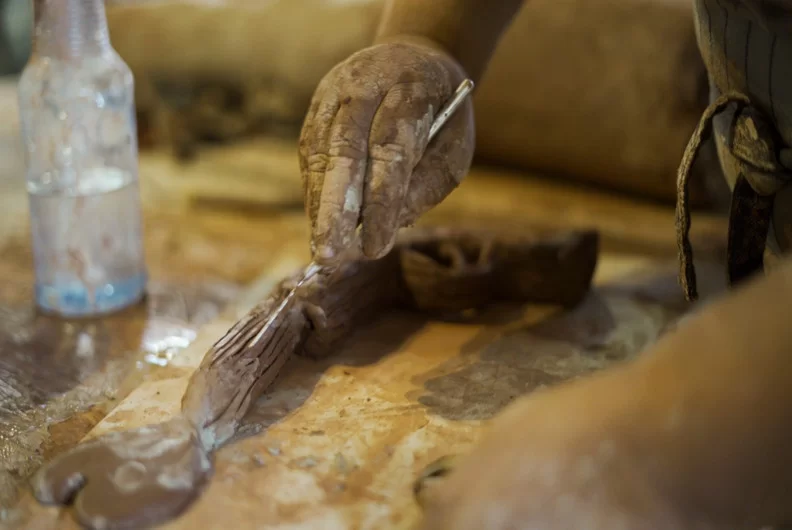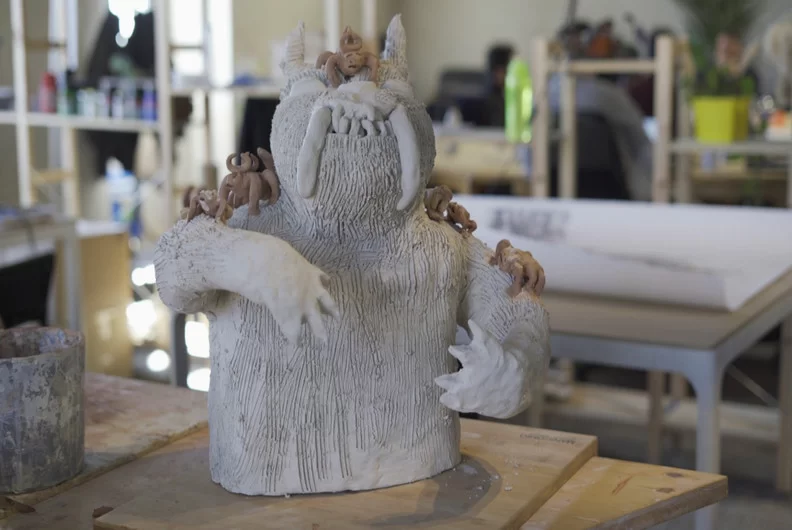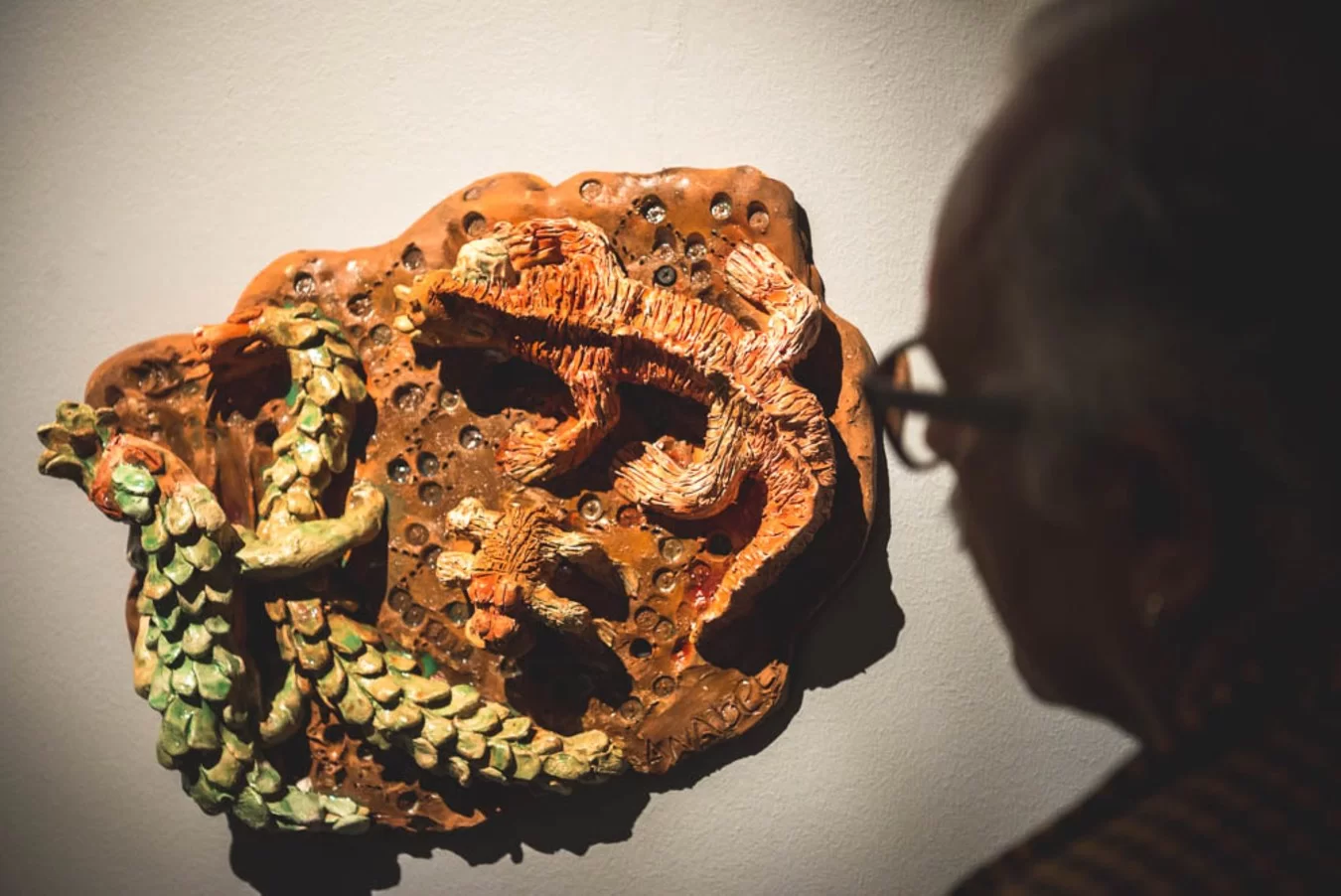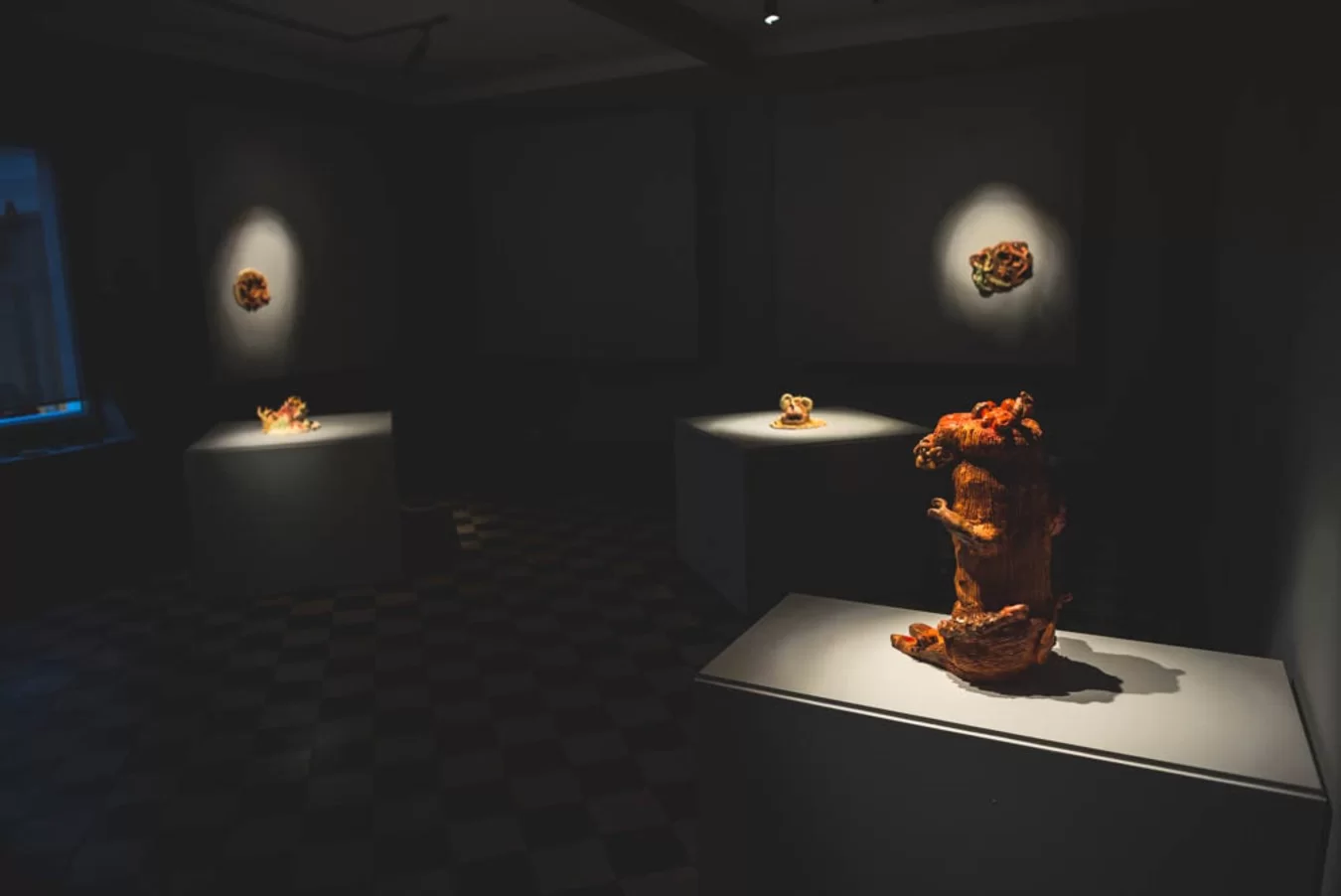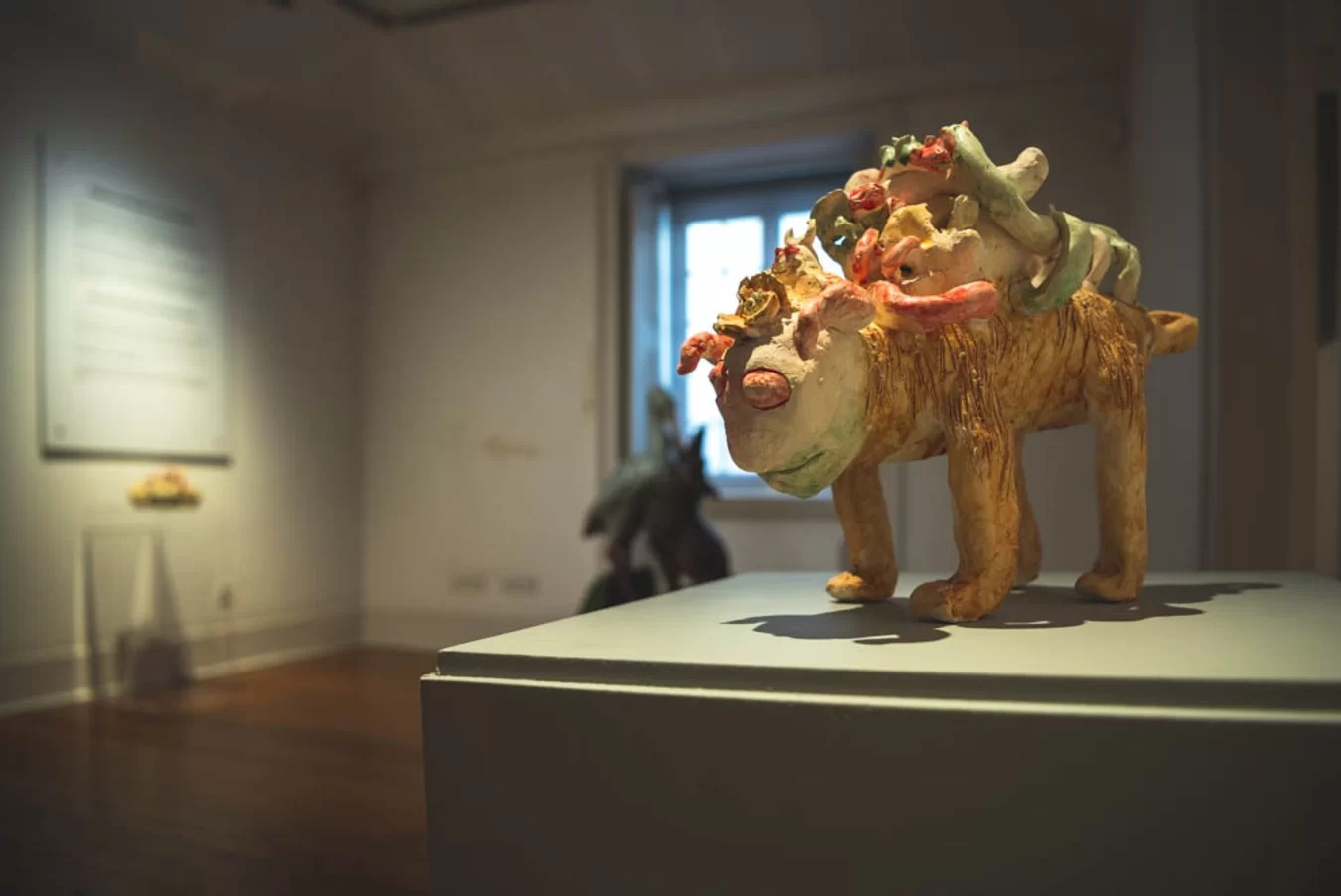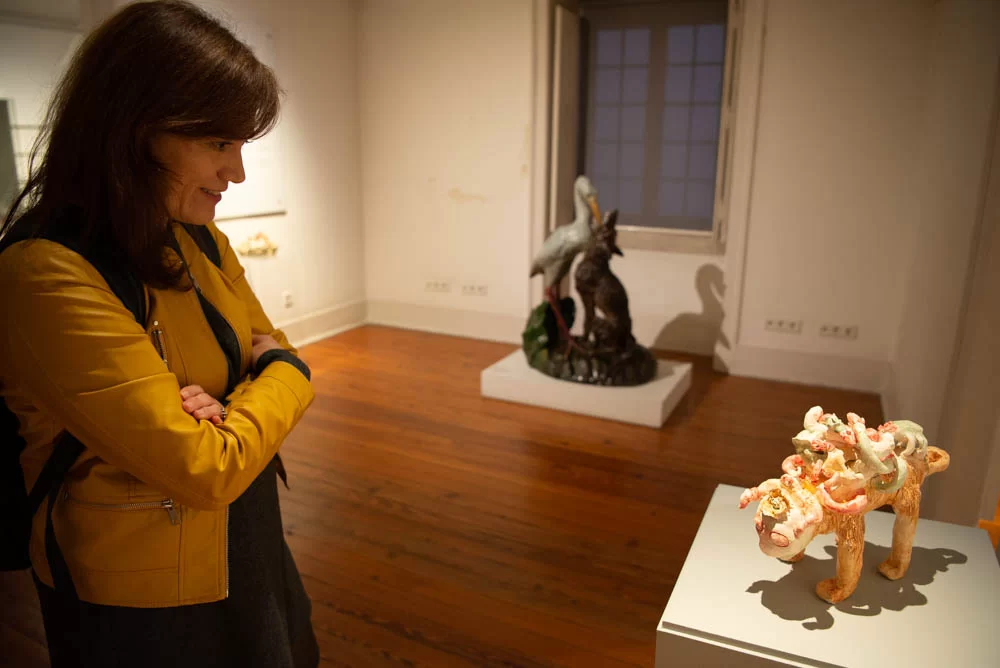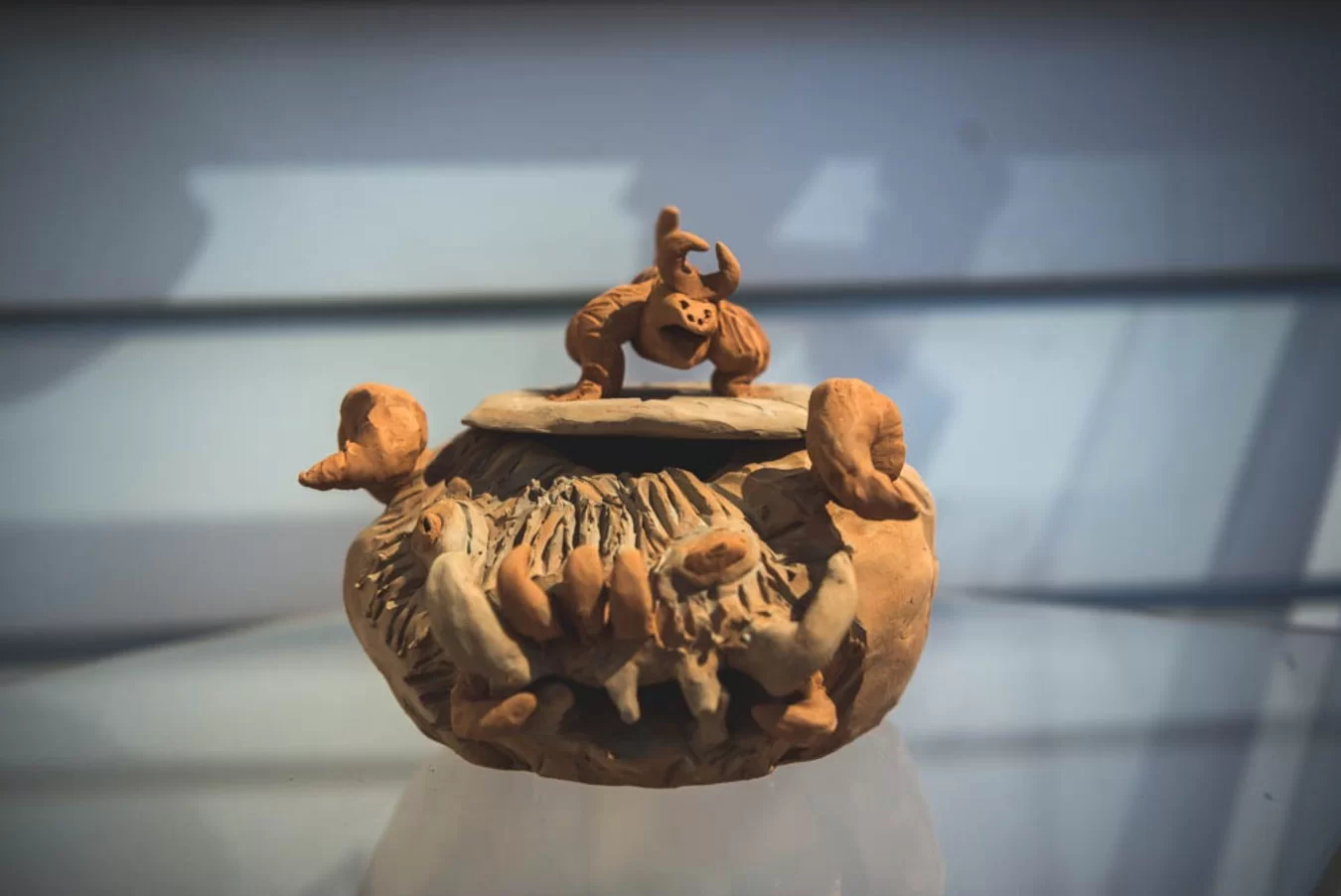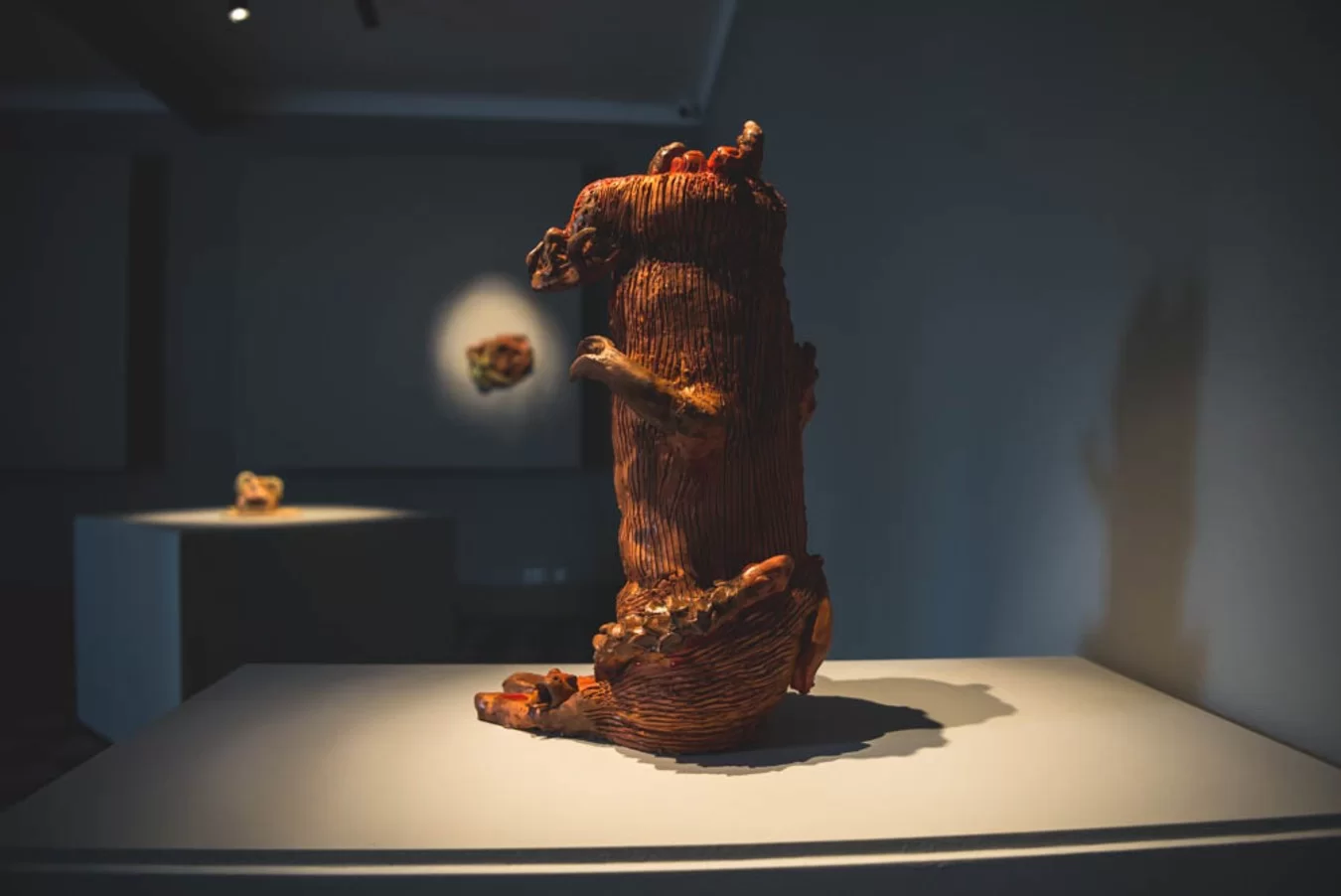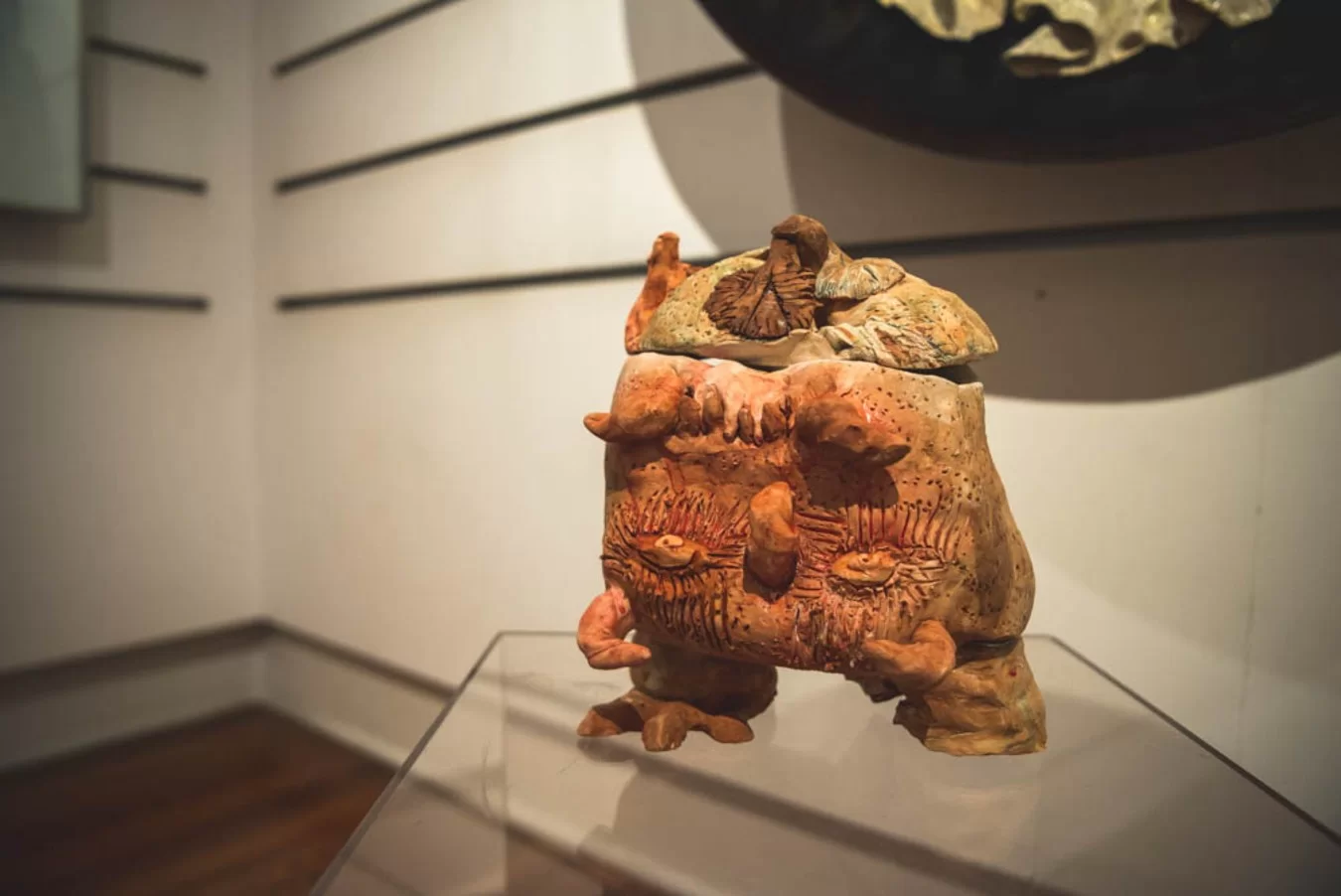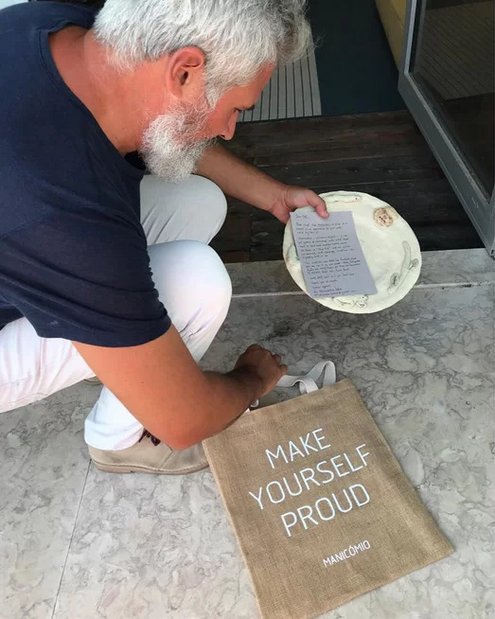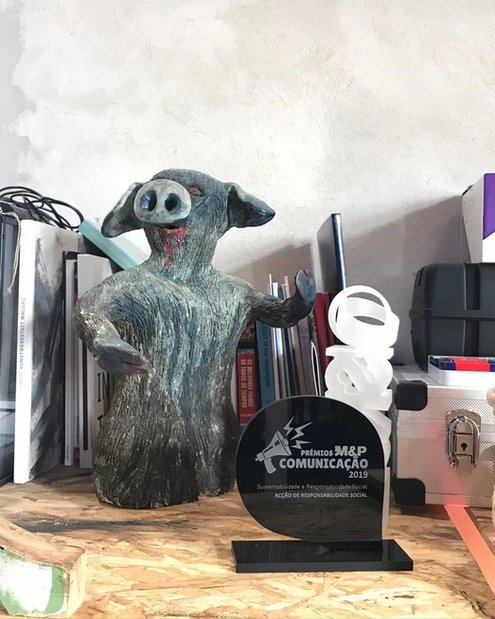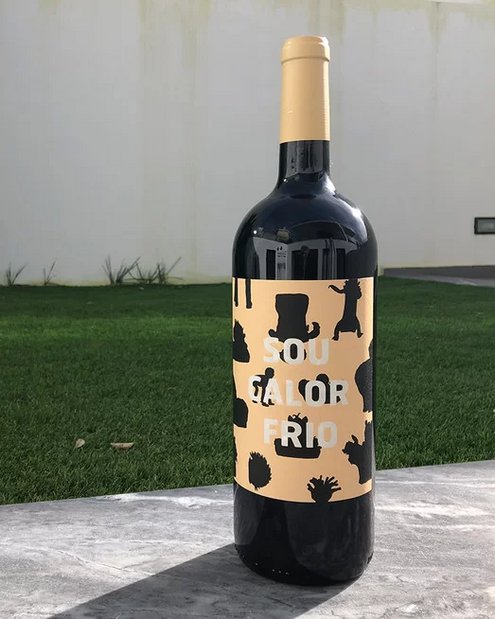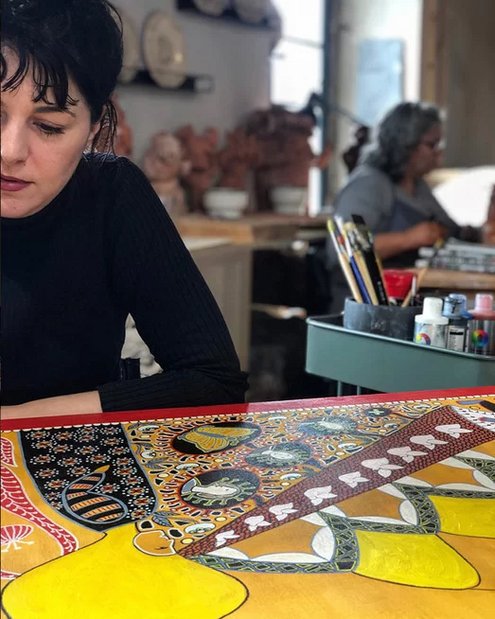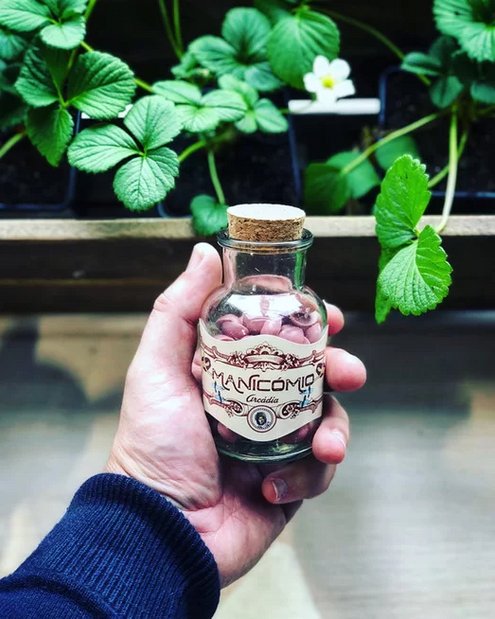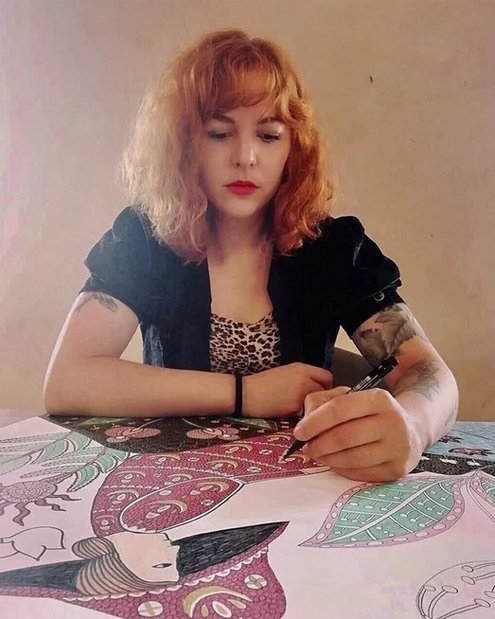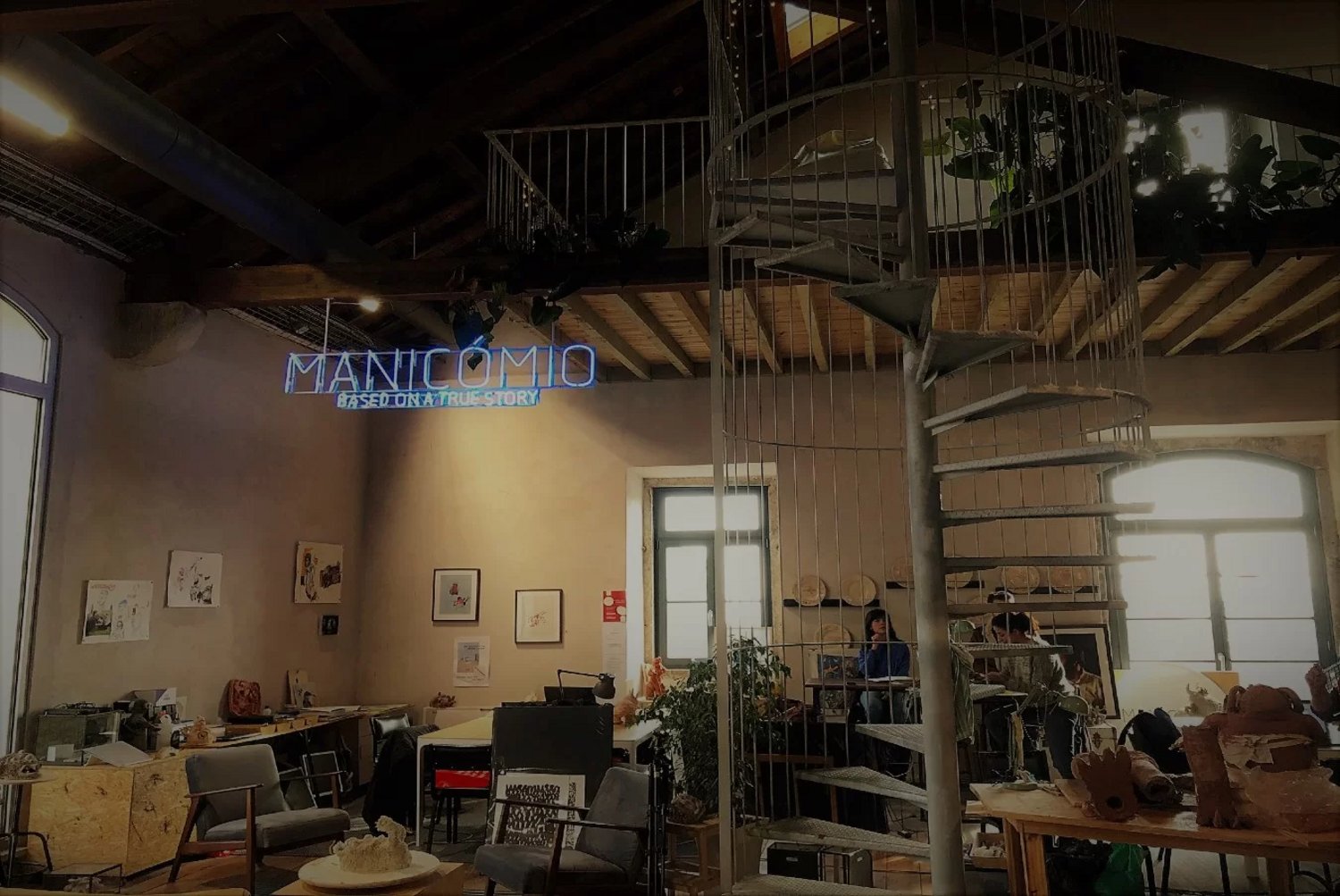Madhouse: Art without prejudice
It is the first creative space, social hub and gallery of Arte Bruta, which promotes the work of contemporary artists and creatives with mental illness.
Nasceu em março de 2019, no Beato, e surge com o propósito de conquistar a dignidade e o reconhecimento dos artistas que lá trabalham. Sem horários a cumprir, o Manicómio oferece liberdade. A maior terapia.
"Peace. A lot of peace. Something I've never had in my life," says Anabela Soares when we ask her how she feels about working on the Manicómio project. With a tough childhood, always believing that no one would ever like her, Anabela found a safe haven there. "It's rare to be able to trust someone, but Sandro and Zé made me believe it was possible."
Anabela Soares has lived with schizophrenia for decades. It was through working with clay that she found a way to express her feelings and "get the monsters out". The ceramicist reveals that the monsters she creates in clay reflect the world she has created for herself and "no one else can fit in there". "I have bad monsters and good monsters. My schizophrenia has given me these two gifts".
After starting out by making stuffed toys, one of which was a giant bear representing the stuffed toy she never had as a child, Sandro Resende and José Azevedo, the project's founders, encouraged the artist to work with clay, a technique she had never tried before.
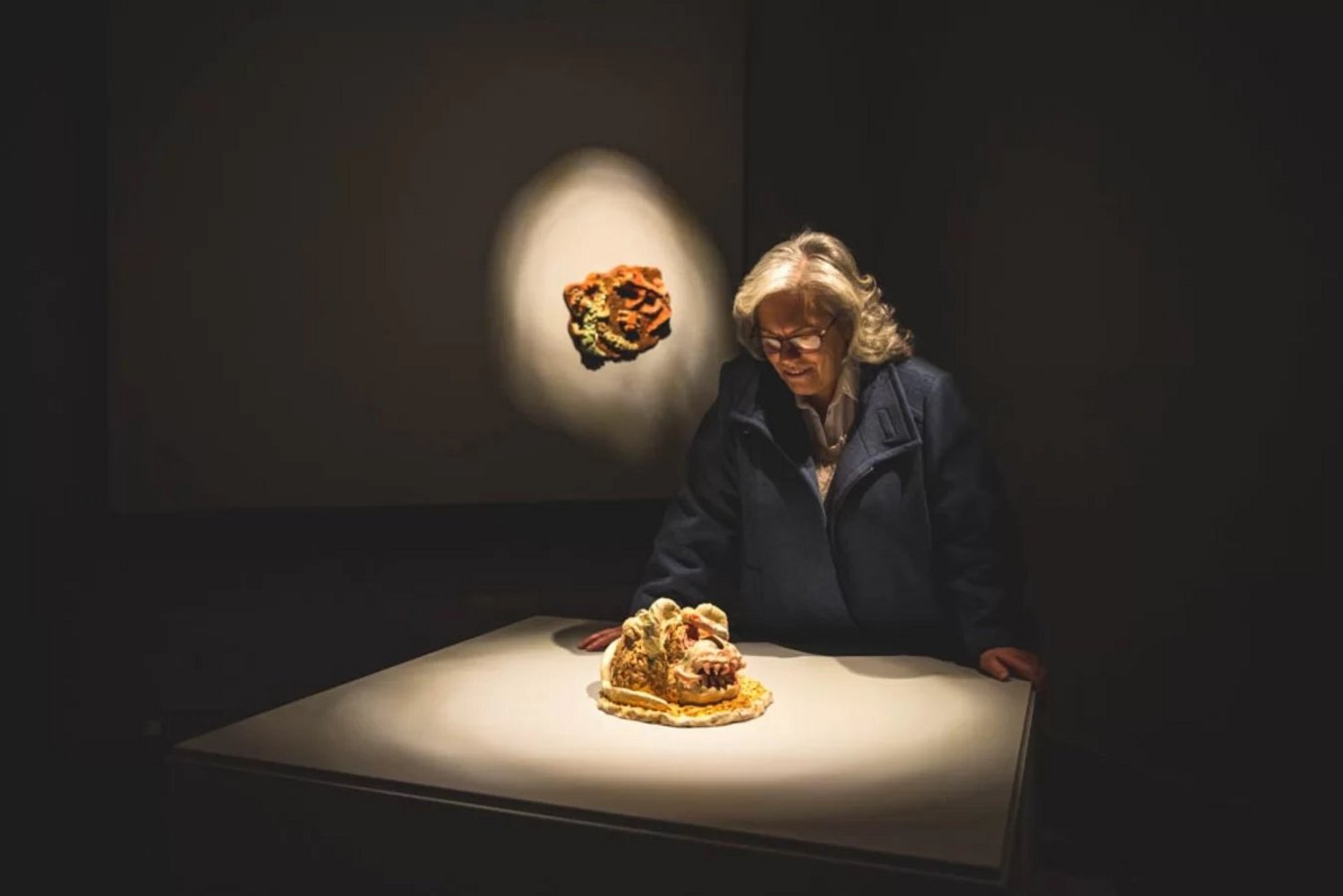
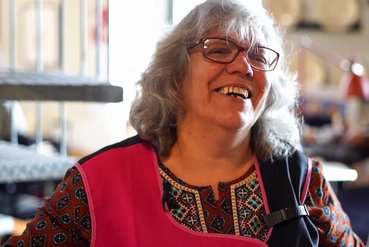
She has now exhibited her work in various venues and was part of the representation of Portuguese artists at the "Outsider Art Fair 2020" in New York. Her latest exhibition, "O dia em que perdi o pé" (The day I lost my foot), which opened last March, follows the artist's residency at the Bordalo Pinheiro Museum between the end of February and the beginning of March 2020. It was the first time that the Bordalo Pinheiro Museum had hosted an artist residency, referring to Anabela Soares as "one of the most interesting and growing artists on the contemporary scene".
Anabela Soares discovered her vocation and a way to maintain joy and balance: "There may be happy people, but as long as I'm in a space run by Zé and Sandro I'm the happiest woman in the world. And as long as they let me make my monsters, of course," she says with a laugh.
Demystifying mental illness
The Manicómio project was the brainchild of Sandro Resende and José Azevedo, founders of the P28 Creative and Artistic Development Association, where they give art classes to patients at the Júlio de Matos Hospital, also in Lisbon. Their work has resulted in a number of exhibitions that have brought together artists with mental illnesses and established names in the field, both Portuguese and international. This was the case with Emir Kusturica, Pedro Cabrita Reis, Jeff Koons and Jorge Molder.
Manicómio was born in March 2019 with the main aim of demystifying the stigma associated with mental illness, encouraging the employability of patients and promoting their social inclusion. "This isn't therapy, it's art," Sandro Resende emphasizes, although the artists guarantee that this space is essential to their well-being. "I've never seen a medical record, what interests me is the person and what they want to do."
Sandro Resende argues that the freedom given to artists creates responsibility. "The schedules are made by the people themselves and when they come to work they arrive with a great desire to do things well and the result is seen both in their work and in their self-esteem."
The artists receive a stipend, which includes meals, transportation and a salary, as well as 70% of the income from the sales of the pieces they produce and 90% from the workshops they run. "The most problematic thing about all this is the waiting list," Sandro admits: "We have more than 80 people on the waiting list for the next spaces, because you can see that we treat people with dignity and not like the sick people they are."
When an artist needs a doctor, a psychologist or a psychiatrist, the action is immediate, unlike the six-month waiting list at public hospitals. The truth is that since it started, the asylum has had no decompensation situations, which, as a rule, Sandro Resende says, occur every two months in people with the medical history of these artists, pathologies that can range from schizophrenia to depression.
A handful of creatives
The co-founder of the space explains that one of the Manicómio's aims is for people to stop needing to be integrated into the project. "We're a kind of crutch. The idea is to start working more at home, which allows us to treat more people."
Sandro reveals that during this period, about a year, they already have two people in this case and another two creating their own companies, two startups, "to get out of here".
The fight against the stigma of mental illness involves rejecting the dependence on subsidies, seeking to highlight the value of the works and the work of the artists of the Manicómio to the market.
The Manicómio has already won creativity competitions, received the Merit Award from the Ministry of Health, has various art projects and has the support of Turismo de Lisboa, Lisbon City Council, Parish Councils, and brands such as Central de Cervejas, Fidelidade, Herdade da Malhadinha Nova and Arcádia.
The day I lost my foot" exhibition - Bordalo Pinheiro Museum
"We work with brands as creatives, not as patients. We look for brands with a history, with a lot of presence and our idea is to manipulate the brand a little and make it our own. The proposal is pitched to the artists and they decide which brand they want to work with. The brand makes money from us and we make money from the brand. It's a fair exchange," explains Sandro Resende.
An example of this is the Portuguese chocolatier Arcádia, which teamed up with artists under Sandro's guidance to create the labels and packaging concept for the launch of new chocolates.
The chocolates were created in the shape of pills and come in a glass bottle with a cork lid, reminiscent of old medicine bottles. The packaging was created with illustrations by the artists of the Manicómio. In a tone of irony, which plays on the appearance of the medication, Manicómio aims to help break down the stigma and taboo associated with mental illness.
Sandro Resende dreams of the possibility of this project being replicated in other parts of the country: "This space arouses great interest and so I think there is great viability in this leap to new spaces, outside the capital."
New partnerships and areas of action are being worked on for the near future. A magazine, a radio station, more branded products and the opening of two more spaces, one of which will be similar to a ceramics factory, where they will work with other types of people who are hospitalized and who are unable to leave. "Employment in metal health is very low and there isn't much of a response, which is why we're working on this area."
The project was founded by the P28 association, which runs pavilion 31 of the Lisbon Psychiatric Hospital. It comes at a time when a fifth of the Portuguese population suffers from mental illness, and Portugal is the fifth country in the European Union with the most cases of mental illness, with anxiety and depression being the most common problems. Data revealed by the Health at a Glance 2018 report by the Organization for Economic Cooperation and Development.
The average waiting time for a psychiatry appointment on the National Health Service is 6 months, and for psychology, 5 months. Privately, a psychiatry consultation costs between 75 and 120 euros, and therapy between 60 and 100 euros. Consultations at the asylum have a fixed price of 30 euros and appointments are direct.
Founders of the asylum
Sandro Resende
With a degree in Painting from the Escola Superior de Belas-Artes de Lisboa and a Painting Course at the Instituto de Artes e Ofícios da Fundação Ricardo Espírito Santo, Sandro Resende from Lisbon heads up P31 at the Centro Hospitalar Psiquiátrico de Lisboa, a space for artistic expression and rehabilitation, where the media project of collaboration with renowned artists such as Jeff Koons and Pedro Cabrita Reis took place. Before P31, he was the artistic director of P27 and P28, also at the Hospital Center known as Júlio de Matos, always as artistic director of the Arte Bruta exhibitions. At Espaço3 he took contemporary art to the Alegro Alfragide shopping center and created the exhibition space Contentores at the Alcântara Docks, a project that was presented at the Liverpool Tate.
José Azevedo
A teacher at the Portuguese Institute of Photography since 1988, the monitor at the Lisbon Psychiatric Hospital Center is responsible for photography and video training. At the same Júlio de Matos, he presented designs for Pavilions 27 and 28, and was the co-creator of P28. He is the co-author of the catalogs for the Surrealist Painters Cycle and "Bearers of Light", books for the Paralympic Delegation to the Olympic Games in Sydney (2000) and Greece (2004).
Awards
June 2019 - Gold & Silver Corpcom.
Lusophone Creativity Awards, received by Corpcom, with Gold in the PR category - Effectiveness in a Public Relations Campaign - and Silver in the PR category - Corporate Social/Environmental Responsibility.
Honorable Mentions
April 2019 - Ministry of Health - Recognition of twenty years of work at CHPL, where Sandro Resende and José Azevedo founded Pavilhão 28.
Contact
Rua do Grilo 135, Lisbon
www.manicomio.pt
@manicomio.portugal
manicomio.pt

